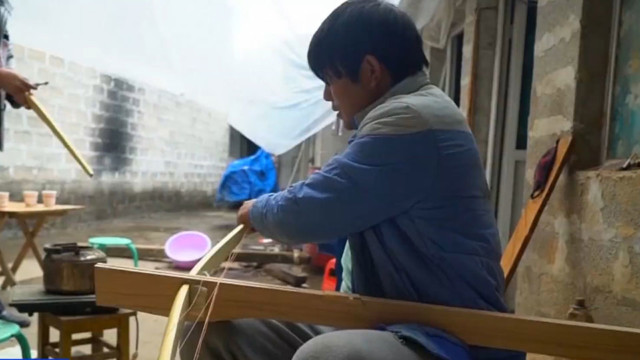Some of China’s regions are concerned that their native cultures may be in jeopardy.
CGTN’s Frances Kuo introduced us to two communities determined to hold on to their heritage.
In the cradle of breathtaking mountains along the China-Myanmar border, a villager named Zhang is taking his best shot with a crossbow.
“This belongs to us, the Lisu people. Sometimes we hunt birds with it,” he explained.
The crossbow is part of his ethnic Lisu culture dating back to 200 B.C. Hunting has been banned in the region for decades, but law enforcement is lax. Zhang and his friends still hunt birds and rodents for sport. But as young people move out of the area for work, the Lisu community worries the crossbow culture may die out.
“So we’re making some crossbows, firstly, because we need to preserve and carry on our people’s crossbow culture. The crossbow’s components are all natural. Nature provides this weapon for us,” said Cha Hairong of the Liuku Township Crossbow Association of Lushui City.
Preserving local culture is also the aim hundreds of kilometers to the northeast in Hebei Province.
Cheng Jinqing lives in one of the birthplaces of this craft: the traditional Chinese wood-turning dating back 300 years. Cheng uses a wood lathe with pedals to mold a symmetrical shape. He learned the craft when he was 17. He’s now 88-years-old, and one of the village’s best wood-turners.
“As long as young people are willing to learn it, this craft can be passed down for several generations,” he said. Cheng already has an apprentice to help ensure the art is not lost.
Woodturning is on the protection list of intangible cultural heritage. Back where the Lisu community lives, the local government has said it’s “committed” to preserving the crossbow culture.
“Our people’s crossbow culture must enter the National Games of China. It must enter the Asian Games. It must enter the Olympic Games! So that people all over world can understand our people’s culture. This is my biggest dream,” said Cha Hairong.
Justin Jacobs discusses the importance of China’s ethnic identities
CGTN’s Mike Walter spoke to Justin Jacobs, who explained the difficulty in preserving China’s cultural diversity. Jacobs is an associate professor of history at American University.
 CGTN America
CGTN America
